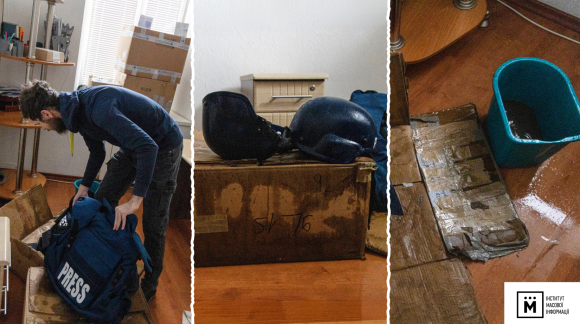
Victoria Roshchyna. Photo by Victoria Roshchyna on Facebook / divoche.media
Last fall, following long talks, Russia said they were ready to hand over journalist Victoria Roshchyna, but postponed the date of her release several times until her death in custody was reported, says Bohdan Okhrimenko, head secretary of the Coordination Headquarters for POW Treatment, in an interview with Ukrinform.
Okhrimenko says the Headquarters repeatedly requested Victoria’s return.
“After a long dialogue last fall, we received a response from the Russians saying that they were ready to hand her over. They postponed the date of her release several times. There were several prisoner swaps in that time. On August 24, there was an exchange when we brought our conscripts back from Russia. There were two consecutive exchanges on September 13 and September 14. One of them involved civilian prisoners. For some reason, the Russian side did not agree to swap her on that day.
“We said, set the date, we can make the necessary arrangements. We have experience. It doesn’t have to be a swap, it could be a mutual return of civilians through the Commissioners, Lubinets and Moskalkova. But they said they would hand Victoria over during the next swap. And there was no next swap, because it was reported that she had died,” Okhrimenko said. He added that Russia did not inform the Headquarters of her death, but shared the information at the request of a lawyer hired by the journalist’s father.
“There was civilian swap that day, and we hoped that she would be there, but alas… The next exchange took place on October 18, when we brought back those who had been sentenced to a life in prison,” he said.
When asked whether the Coordination Headquarters thinks that Victoria could have died in September, when she was not included in the September 13 civilian swap, Okhrimenko replied that the approximate date of death could be established by forensic experts after the journalist’s body is returned.
He theorized that Russia has not given Victoria Roshchyna’s body back since the fall of last year because “there is the cause of death issue.”
“I am not making statements, but assumptions. To obscure the cause of death, you need to keep the body in bad conditions for as long as possible. Any forensic expert will tell you that,” said the POW Treatment Headquarters representative.
He assured that the work on the return of Victoria Roshchyna’s body was ongoing: “We are trying to convince the other party to give it back. Then we will be able to say something, now we are only making assumptions.” He added that the return of Ukrainian civilians, including journalists, from Russian custody is further complicated by the Russian side not having a designated person for this.
“We have freed Nariman Chelal and Maksym Butkevych, so there should be fewer (journalists in captivity. – Ed.) now. The release of journalists, as well as civilian prisoners, is complicated by the fact that the Russian side has no designated person for this line of work. The Russian Commissioner, Mrs. Moskalkova, is just a voice that parrots the narratives that the Putin administration gives her. But when it comes to returning specific civilians, she has no authority to do so,” he said.
According to Okhrimenko, freeing an imprisoned soldier is difficult, but easier than a civilian, since the POW Treatment HQ is working with the Russian Ministry of Defense, the Federal Penitentiary Service and, to a certain extent, the FSB on this issue.
“But when we ask about civilians, they say that those are not ‘their jurisdiction,'” he noted.
The Headquarters representative explained that the release of journalists also depends on what they were working on at the time of being detained. If they had enlisted in the army, this makes bringing them back somewhat easier.
For instance, the released journalist Maksym Butkevych is a serviceman. Many of those who were returned as civilians were ATO veterans or retired military personnel.
“Here we also need to understand the subcategories, because civilians are different. If we take the Third Geneva Convention on Prisoners of War, it outlines the term ‘combatant’. This category can include not just a soldier wearing a uniform and carrying a weapon, but also civilians helping the Ukrainian Armed Forces. The Russians believe that such a civilian becomes a combatant. In this case, we can have a dialogue with the Ministry of Defense of Russia,” Okhrimenko explained.
He assured that the work on the release of journalists from detention continues and civilians are being brought back from Russia. Namely, out of the total 4,131 people released from custody, 171 are civilians.
At least 30 civilian Ukrainian media workers are illegally held in Russian custody, according to the Institute of Mass Information.
The death of Ukrainian journalist Victoria Roshchyna in Russian detention was reported on October 10, 2024. Petro Yatsenko of the Coordinating Headquarters for POW Treatment confirmed reports of Victoria Roshchyna’s death.


